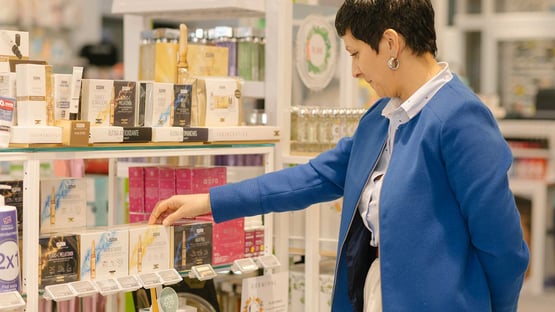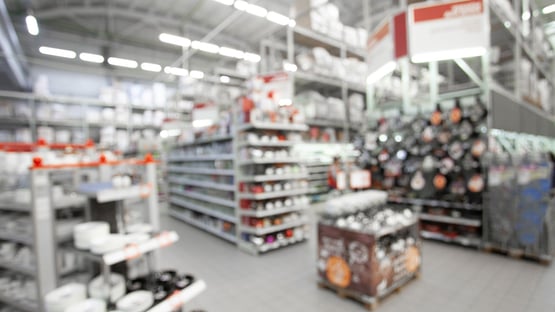There was a time when each unique item in a retail store had a price paper label attached to it. The ineffectiveness of the system led to the introduction of EAN codes. But retailers still had headaches from spending nights trying to update the printed paper labels along the store aisles. At least until they met Erik Danielsson.
If Erik Danielsson would have been a doctor, he might have treated the store manager's headache differently. But Erik was an entrepreneur and the founder of Pricer, so he spent much of the early 1990s listening and talking to store owners, trying to understand how he could help them by solving some of the most dreadful and grueling tasks of shelf management in stores.
The first generation
Their pain kept him, and a group of talented colleagues, motivated to seek a better way, where shelf management could be made more effective and automated. From that came the first generation of electronic shelf labels (ESLs). It was built on robust infrared technology, enabling it to work anywhere and anytime.
Since then, the people behind Pricer have never settled. Together with progressive and bold clients, the quest for new innovations that makes retail easier and more digital has been at the heart of the company's operations.
While the company is now at the center of retail digitalization, you still find ESLs playing a key role. Not only have they progressed with better battery life and crisp screens, they have also risen to the occasion of playing a fundamental part as eyes and ears of the store.
Heart of digitalisation
The liquid crystal display ESL from 1991 has now evolved into a critical solution for key digitalization efforts such as:
- Dynamic pricing – eCommerce inspired stores to do more pricing updates per day than ever before, often carried out in real-time.
- Waste reduction – consumers have little acceptance for unnecessary waste and together with partners, Pricer addresses the issue head-on at the shelf-edge.
- Geolocation – the patience of consumers is lower than ever, and through mapping and visual innovations, Pricer leads the way in the store.
- Scaling – even before the pandemic, the demand for services like click & collect grew every year, and to deliver, stores need to automate and scale their processes.
- Real-time – with a robust, scalable and reliable ESL platform, combined with AI technology, store owners nowadays get insights in real-time.
These are just some of the examples that we see every day at progressive retailers around the world. While some of the old ESLs could very well be part of an exhibition at a technology museum, the ESLs of today play a critical role to innovate, automate and digitalize retail. For the sake of retail, thank goodness Erik Danielsson was not a doctor.
Published on October 19, 2021



